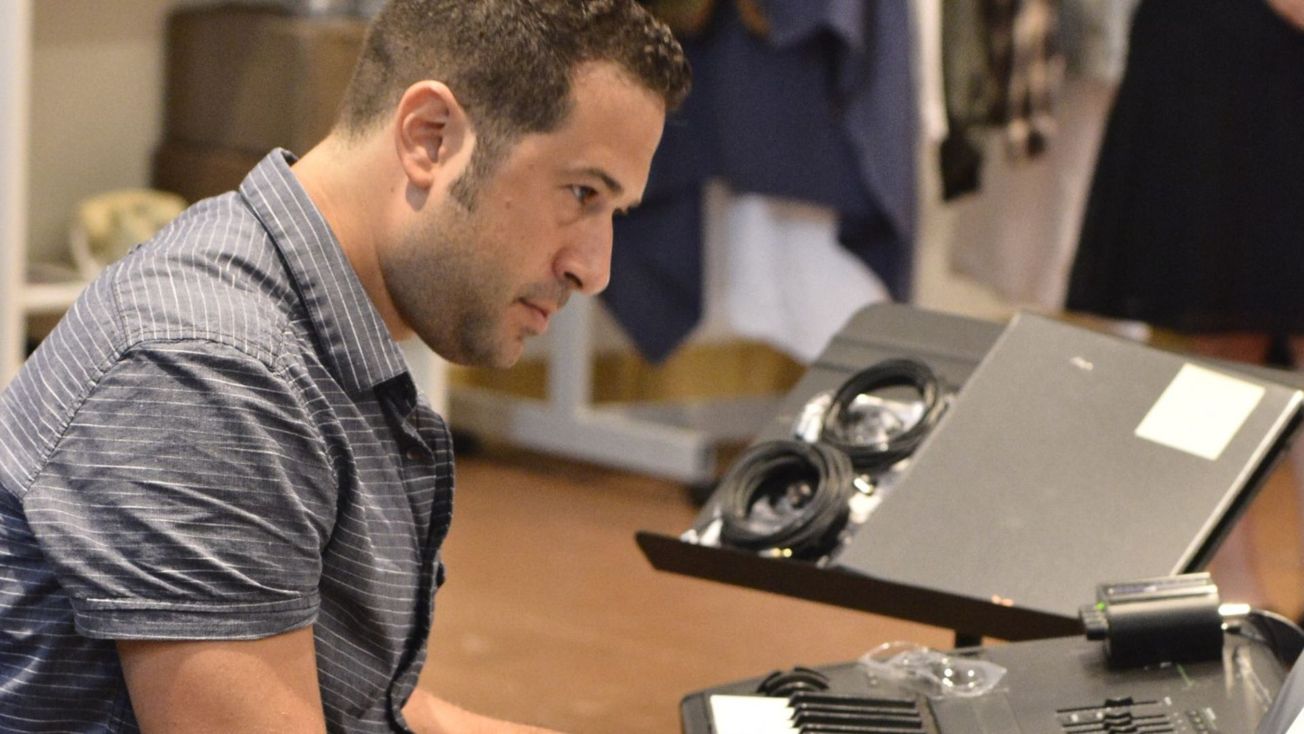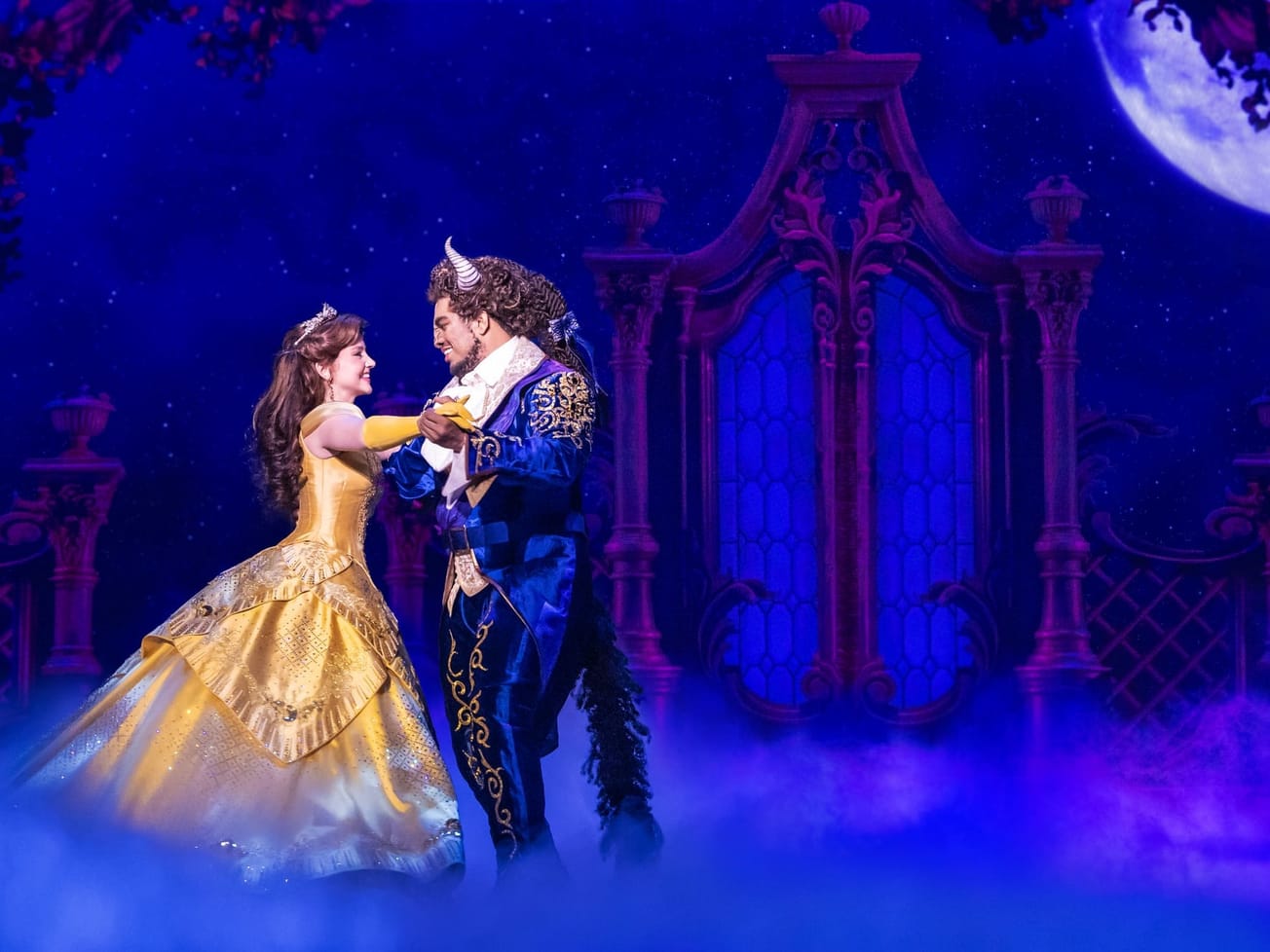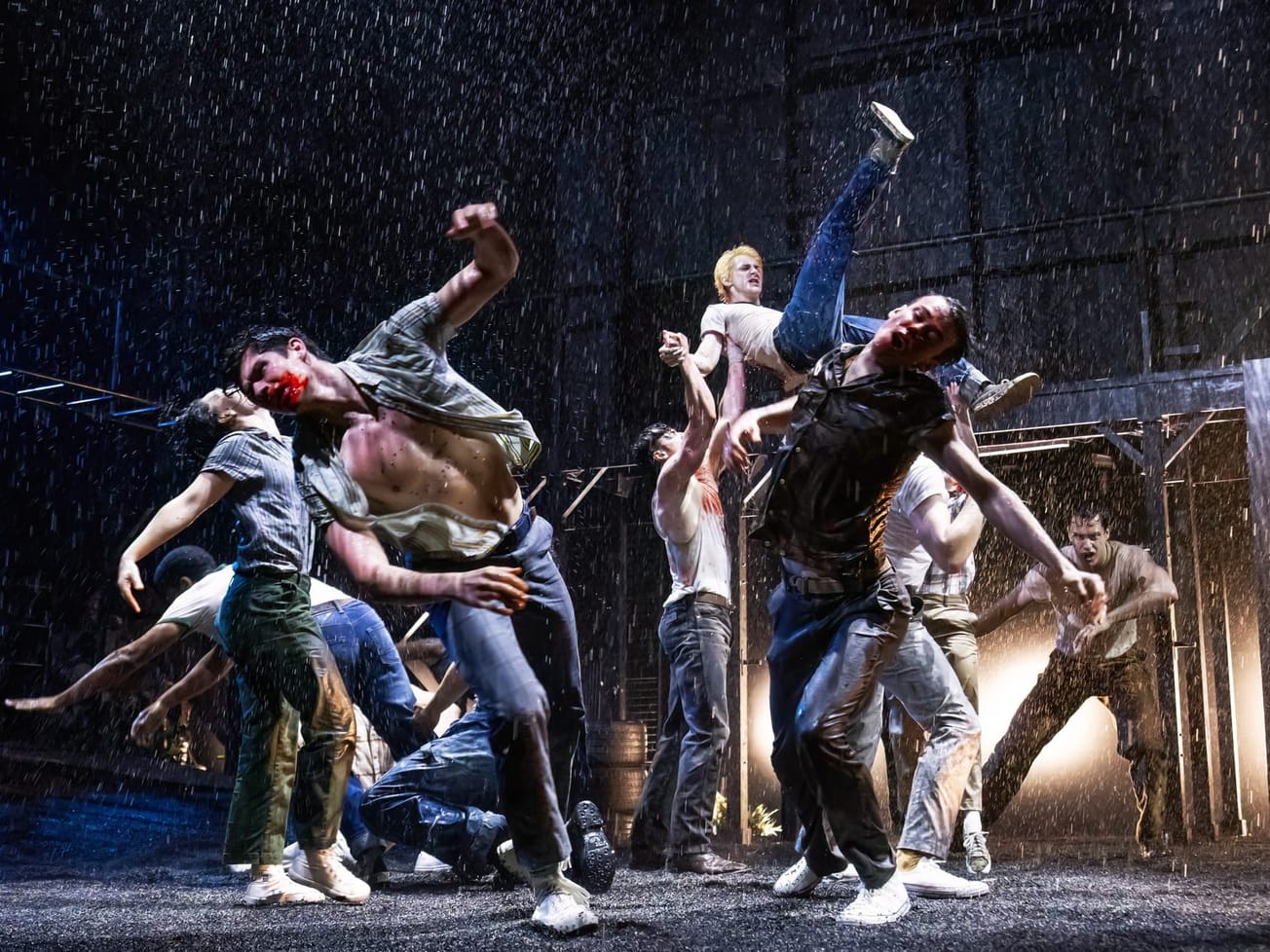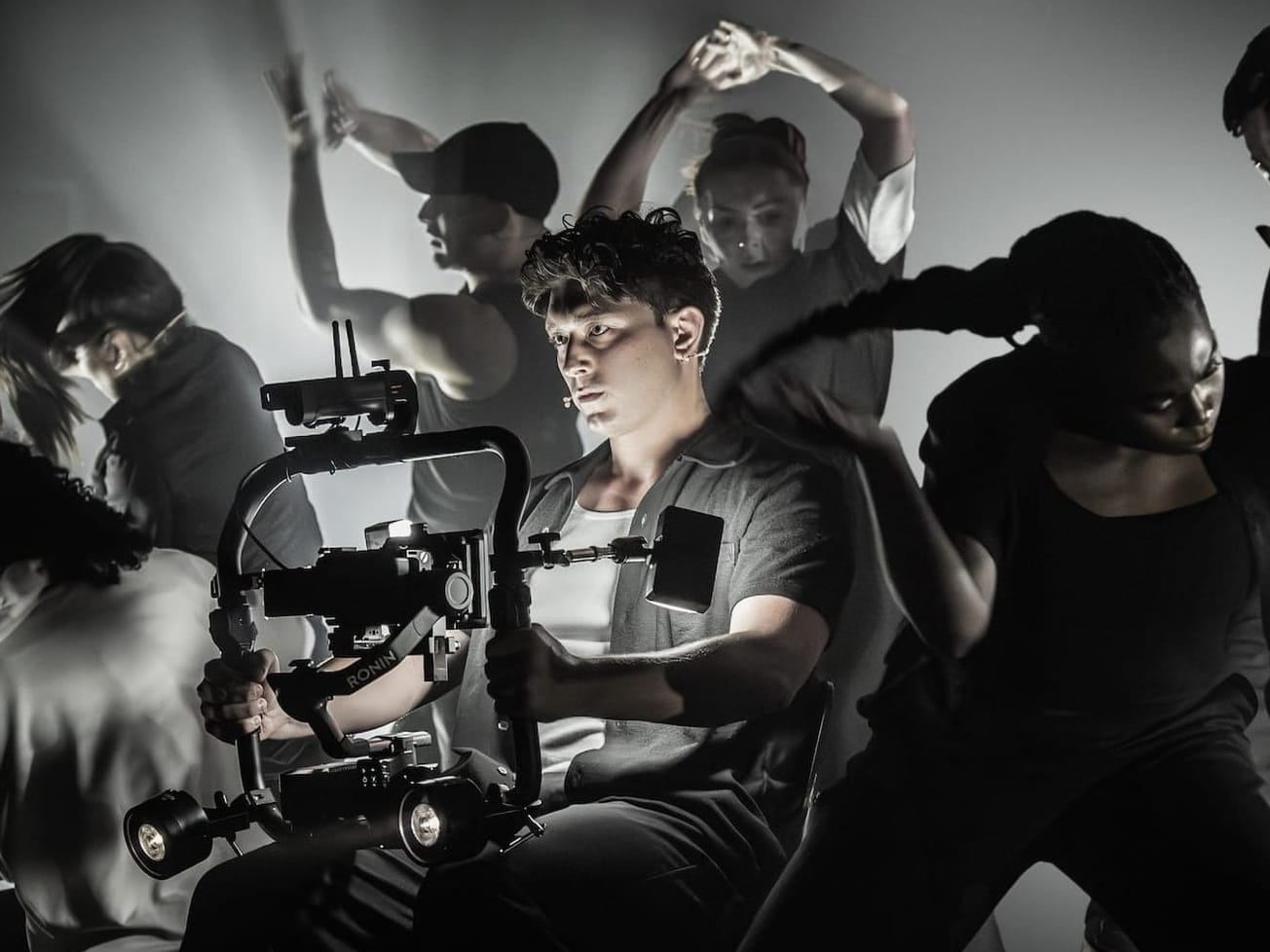Will Ferrell walks down the long hallway of a hospital on the set of his original movie musical “Spirited,” performing Benj Pasek and Justin Paul’s original song “Unredeemable.” It’s the moment in the spoof of “A Christmas Carol” when his character faces his inner demons. Ferrell sings along to piano accompaniment piped in through his earwig as Pasek and Paul, their music team and the entire crew assess — that includes executive music producer Ian Eisendrath, who sits on the other end of that earwig, playing the live piano.
Someone shouts “Cut!” and Eisendrath approaches Ferrell to discuss the take, to hear how Ferrell’s feeling, to offer him direction. After conferencing with the actor, Eisendrath relays with his songwriters, the sound department and the camera crew; he makes mental notes about how he wants the song to sound in post and what he’ll have to request from sound mixers and editors and fellow producers to achieve it. As the executive music producer on the Apple TV+ film, Eisendrath is the nucleus — the role he dreamed of filling since he was a kid.
At 10 years old, Eisendrath was cast in a community theater production of Gilbert and Sullivan’s “The Mikado” in his hometown of Olympia, Washington. On that stage, he discovered what he wanted to do with the rest of his life: be a music supervisor.
“I remember standing center stage and seeing a music director … and being like, ‘Oh my gosh, I love that job because he’s playing, conducting, making the music. He was creating arrangements, talking to actors, helping the actors sing, working with the director, working with the choreographer,” Eisendrath listed with glee. “It’s this hub at the center of the wheel, and it’s not the star position, but what you get to do is really collaborate with and impact so many people.”
Not long after, the elementary school’s theater teacher asked Eisendrath to write the music and music direct the school musical. He was 11. “I loved less the music writing and more of working with the 200 kids and being at the piano and sculpting something,” he remembered.
By 15, a local semi-professional theater offered him the job of music director. He assumed the role while finishing his last two years of high school. Then, two years after graduating the University of Michigan with a self-created degree in Conducting Musical Theater and Choral Repertoire, Seattle’s Fifth Avenue Theater offered him the position of resident music supervisor. “I was responsible for the budgets, the hiring, music directing several shows each year,” he explained. He’d conceive the instrumentation for the show, design the rehearsal process, devise the sound team-music team collaboration, and then he became involved with the early development of new musicals.
Still, there’s mystery surrounding the term music supervisor (and its relatives — music director and executive music producer). Eisendrath referred to himself as a “musical dramaturg.” “My job is to be there to support the writers in whatever they need as they’re writing,” he said. “Whether it’s helping to organize their process, to being there to bounce things off, to getting things scored out, to contributing arrangements.”
“I always try to bear the weight of: What is the balance of the whole score? What are the themes? Are we using the themes intelligently to build the story and build the musical experience?”
Historically, in theater, the music director was responsible for the complete music experience and for conducting. “That happened at a time when sound design was very minimal, so really your experience in the pit was very much analogous to what was happening in the house,” Eisendrath explained. “That was a time when you could conduct and you could look at the winds and say, ‘You play a little bit quieter, you play a little louder,’ and you knew that what you were doing was actually translating [to the audience experience of the music].”
With the advent of electronic music design, microphones and more sophisticated sound technology, the experience inside the orchestra pit (if there even is one) and the house has bifurcated. Someone in the house needs to suss out instrument and vocal levels, sound quality, amplification and balance. Eisendrath noted, “You could have the greatest sound designer in the world … there has to be a musical partner in that.” That’s the music supervisor. They liaise with the songwriter, orchestrator, sound team, cast, conductor, musicians, stage management, choreographer and director to create the music experience for the audience.
Eisendrath got his Broadway musical supervision big break courtesy of fellow University of Michigan alumni: Pasek and Paul.
Their musical “A Christmas Story” actually began at Kansas City Rep, with a different songwriter. Eisendrath was the music supervisor on that regional premiere, while still maintaining his resident music supervisor duties at Fifth Avenue. The Seattle-based theater decided to produce the show, but with a new composer. Pasek and Paul were one of five teams to submit for consideration.
Eisendrath selected the duo based on their spec song “Red Ryder Carbine Action BB Gun.” After music supervising the reading at Fifth Avenue, Pasek and Paul decided to keep him on through development, productions in multiple cities, a tour and all the way to the show’s Main Stem bow.
On Broadway, Eisendrath has since taken on music supervision of “Come From Away” and “Diana, The Musical.” Plus, he’s continued his collaboration with Pasek and Paul — first on “A Christmas Story Live!” then “Lyle, Lyle, Crocodile” and “Spirited.” Though his skills traverse the stage, live television musical events, captures of live theater performances and movie musicals, the purview expands in the move from stage to screen.
Film (including captures) “lives in the edit,” so on top of the music direction and music supervision he does in theater, the process repeats in a recording session — hence the title executive music producer. Each movie Eisendrath has worked on includes a mix of live on-set vocals and recording sessions in the final cut. He is responsible for overseeing the production of all vocal tracks, instrumental tracks, electronic music tracks and the way it all coalesces into the finished sound audiences hear through their speakers.
More than choosing takes or working with editors, Eisendrath influences the way the sound is first generated. Pasek and Paul’s music for “Spirited,” for example, embodies fantasy. As the characters zoom through time and space (Dickensian London, a hospital five years ago, a cavernous museum hall in the afterlife, a riverbank today), Eisendrath customizes the recording conditions for the sound he wants.
“In [the number] ‘Good Afternoon,’ all of a sudden we walk into Dickensian London. Well, what’s the sound of Dickensian London? To us it’s that ‘Mary Poppins,’ ‘Oliver! [sound],’” he said. “So we’re going to do that with an 80-piece orchestra, at AIR Studios, that is made up of the instruments that you hear in the ‘Mary Poppins’ and ‘Oliver!’ of it all.” But Eisendrath also recorded some instruments — like a tack piano, accordion, banjo and more — at Abbey Road in Studio Two (where the Beatles recorded “Mrs. Mills”) to get that scrappy street sound.
“Every song got its own treatment,” Eisendrath said. “The world of ‘Spirited’ allowed us to be highly varied and specific in the musical choices from moment to moment.”
In 12 songs, Eisendrath essentially created 12 musicals. Yet, in terms of balance and quality, when viewers watch at home, the music sounds like it was done at the same time, in the same room, in the same breath. That consistency is Eisendrath’s holy grail.
Regardless of the project or its style (up next is the live action “Snow White” and work on the “Wicked” movie), musical excellence is always Eisendrath’s goal. That’s what he wants to emanate from his hub in the wheel.
“I love [this job] ’cause you get to do so much and you are touching so many phases of what it’s like to work in theater and what it’s like to work in the studio,” Eisendrath reflected. “And it feels like such a wonderful match.”


























































